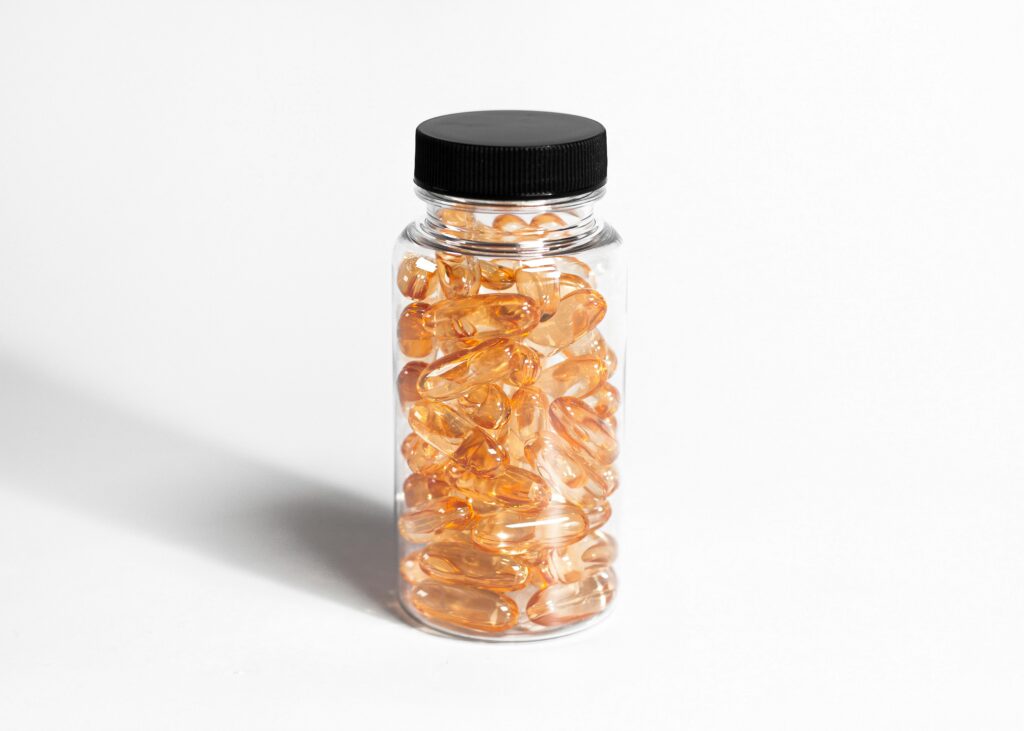Facial skincare tends to dominate the health and wellness market. However, we need to think beyond our face when considering the skincare products we use. The skin on our body, face, and intimate areas all vary in sensitivity and often have different needs.
For instance, did you know that the skin around your vulva and vagina tends to be some of the most sensitive on your body? As a result, it’s also the most prone to develop itching and irritation.
That’s why it’s important to take a close look at the products you’re using around your vulva and in your vagina. The key to preventing unpleasant symptoms like itching? Using products with a superpower addition: Vitamin E.
Already a popular ingredient in many facial skincare products, Vitamin E, when applied to your vulva and vagina, can relieve itchy, irritated skin. It may even help relieve menopause-related symptoms.
What causes an itchy vulva and vagina?
Most women develop itching around the vulva from an allergic reaction to a product or irritation from chafing clothing when it’s too wet or too hot. Healthcare professionals use the term vulvar dermatitis, a type of contact dermatitis, to encompass the two types.
Someone can also develop an itchy vulva due to chronic skin conditions like eczema or psoriasis. Yeast and bacterial infections can cause vulvar and vaginal discomfort and itching, too, but often necessitate a prescription to relieve.
Women in perimenopause, menopause, or postmenopause tend to be more susceptible to vulvar dermatitis, also known as vaginal atrophy when it relates to menopausal symptoms. As estrogen levels drop, a woman’s vulvar tissue becomes thinner and drier. This can cause symptoms like itching, burning, and pain during sex. One study reports 75% of women undergoing the menopause transition cite vaginal atrophy as a primary, life-altering symptom.
How does vitamin E relieve vulvar and vaginal irritation?
Vitamin E continues to gain notoriety as a primary ingredient to help soothe dry, itchy skin—and for good reason. It’s a fat-soluble vitamin, which means it’s absorbed along with the fats you eat. Vitamin E can stay stored in your body, unlike water-soluble vitamins.
Studies also show that when applied topically, vitamin E can increase your skin’s hydration and ability to retain moisture. For dry, itchy skin, vitamin E soothes inflammation and swelling, decreasing symptoms caused by allergic reactions, irritation, and often eczema.
For perimenopausal, menopausal, and postmenopausal women, vitamin E serves as a strong antioxidant and helps stop the effects of oxidative stress. Oxidative stress occurs when your body contains too many free radicals (unstable atoms). These free radicals can harm your cells and tissues and can lead to chronic conditions like heart disease, autoimmune disease, and visible signs of aging.
Postmenopause, women may experience more oxidative stress due to a lack of protective estrogen. However, antioxidants like vitamin E can prevent these free radicals from doing damage by neutralizing their impact and repairing cells throughout your body.
Antioxidants also aid in circulation, which can improve blood flow to your vulva and vagina, strengthening the skin barrier and improving flexibility.
Vitamin E contains powerful components that can reduce (and often relieve) symptoms of vaginal atrophy brought on by the menopause transition. Even compared to other topical ingredients, like hyaluronic acid, vitamin E continues to reduce vaginal dryness. It may even reduce other menopause-related symptoms like hot flashes.
Vitamin E Remedies for an Itchy Vulva and Vagina
Vulvar and vaginal irritation, itching, and atrophy can impact your day-to-day routines, sex life, and overall health and wellbeing. And recognizing that a majority of postmenopausal women experience irritated and itchy vulvas and vaginas, women must know about increasing vulvar sensitivity and the best ways to treat and prevent symptoms of vaginal atrophy.
Lubricants and moisturizers that contain vitamin E top the list for quick, effective ways to treat an itchy vulva and vagina. Our Mia Vita Personal Lubricant and Vaginal Moisturizer contains vitamin E as one of its primary ingredients and relieves itching, irritation, and pain during sex. It’s also FDA-cleared for internal vaginal use for maximum effect. We recommend using the moisturizer for at least 28 days. This would help your skin regain lost hydration and build up its ability to retain moisture. Then, you can apply every other day or as needed.
Avoid fragranced and harsh soaps around your vulva to reduce potential allergic reactions and further irritation. Wearing loose-fitting clothing and cotton underwear helps vulvar skin to breathe. Remove any wet or moist clothing that touches your vulva, especially in hot environments to prevent irritation. You can also increase your intake of foods with vitamin E, such as almonds, peanut butter, broccoli, and sunflower seeds, for an extra boost.
However, if irritation remains or worsens, make an appointment with your healthcare provider. Some causes of vaginal itching, like severe eczema or a yeast infection, may require specialized treatment.
